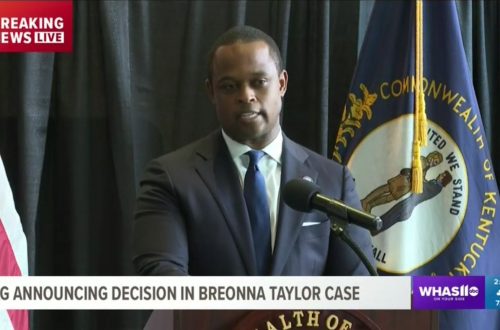 The Advocate has an article calling into question the common understanding of Matthew Shepard’s 1998 murder. Almost immediately after Shepard’s death, people began to form the impression that the murder was a hate crime targeting a homosexual young man. Aaron Hicklin reviews a new book that challenges that narrative and says that the circumstances surrounding this crime were quite different. He writes,
The Advocate has an article calling into question the common understanding of Matthew Shepard’s 1998 murder. Almost immediately after Shepard’s death, people began to form the impression that the murder was a hate crime targeting a homosexual young man. Aaron Hicklin reviews a new book that challenges that narrative and says that the circumstances surrounding this crime were quite different. He writes,
What if nearly everything you thought you knew about Matthew Shepard’s murder was wrong? What if our most fiercely held convictions about the circumstances of that fatal night of October 6, 1998, have obscured other, more critical, aspects of the case? How do people sold on one version of history react to being told that facts are slippery — that thinking of Shepard’s murder as a hate crime does not mean it was a hate crime? And how does it color our understanding of such a crime if the perpetrator and victim not only knew each other but also had sex together, bought drugs from one another, and partied together?
It’s remarkable that The Advocate’s reviewer appears to agree with the thesis of the book. Nevertheless, Hicklin says that the false narrative played an important role in the march for gay rights and therefore served a good purpose. This line is particularly telling:
There are valuable reasons for telling certain stories in a certain way at pivotal times, but that doesn’t mean we have to hold on to them once they’ve outlived their usefulness… The Shepard story we’ve come to embrace was just as necessary for shaping the history of gay rights as Lawrence v. Texas; it galvanized a generation of LGBT youth and stung lawmakers into action. President Obama, who signed the Hate Crimes Prevention Act, named for Shepard and James Byrd Jr., into law on October 28, 2009, credited Judy Shepard for making him “passionate” about LGBT equality.
This is astonishing. According to Hicklin, it doesn’t matter whether the “hate crime” narrative is truthful. All that matters is that it is “useful.” It advanced the cause, so who cares whether or not it’s true?
Matthew Shepard’s death was a tragedy and a grave injustice. I’ll leave others to debate whether his murderers were motivated by hatred for homosexuality. Nevertheless, there are some things that shouldn’t be up for grabs. Everyone should agree in principle that the truth does matter. Unfortunately, there are some parties to this debate who confess that it doesn’t.
(HT: Eric Teetsel)




5 Comments
Aaron O'Kelley
I saw a news report several years ago that contradicted the conventional hate crime interpretation. I think it was a John Stossel report back when he was on 20/20.
Bill Hickman
Even if the Shepard case has been misunderstood, the point it stood for – that gays have, in fact, been discriminated against and treated brutally – seems pretty unimpeachable. So I’m not sure why this matters.
buddyglass
Stephen Jimenez is himself gay, by the way.
Ian Shaw
^^^So Jimenez himself is blowing the whistle that homosexual groups took the murder of a young man (wrong/horrible as it is), ignored clear facts/truths about what happened and used what evidence they wanted to further an agenda? Which in turn, shows that they cared not for the person who lost their life, but of their own selfish desires. That’s really disrespectful of human life.
Pingback: